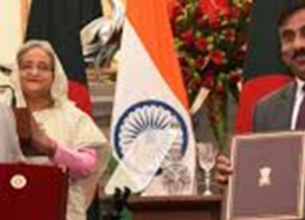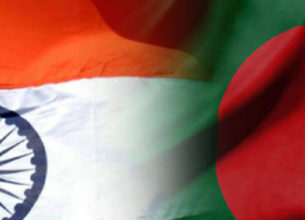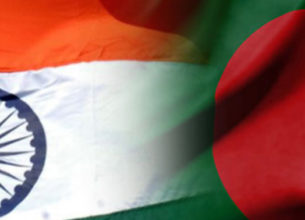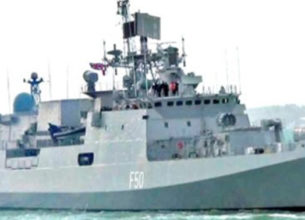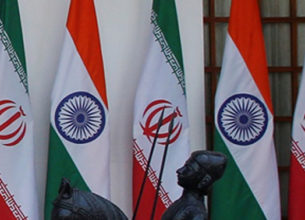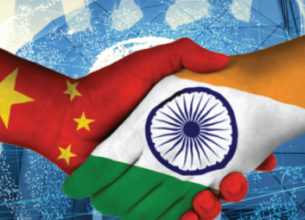PM UNVEILS ‘ACT FAR EAST’ POLICY
07, Sep 2019

Prelims level : India- Bilateral Relations
Mains level : GS-II- Bilateral, regional and global groupings and agreements involving India and/or affecting India’s interests.
Why in News?
- In the presence of Russian President Vladimir Putin, Prime Minister Narendra Modi unveiled the ‘Act Far East’ policy to boost India’s engagement with the Russian region, at the plenary session of the Fifth Eastern Economic Forum (EEF).
Background:
- PM Narendra Modi was in Russia as the chief guest of the 5th Eastern Economic Forum.
- It is an international forum held each year in Vladivostok, Russia, for the purpose of encouraging foreign investment in the Russian Far East.
- Modi is the first Indian prime minister to visit to the Russian Far East Region.
Highlights:
- India concluded around 50 agreements worth $5 billion at the EEF-2019.
- PM announced a $1 billion line of credit for the development of the resource-rich region.
- Modi appreciated Mr. Putin’s vision for the welfare for Russia’s Far East, saying the President had opened up investment opportunities for India in the region.
- India’s connection to Russia’s Far East go back a long way. Indian firms have invested over $7 billion in taking stake in Russian oil and gas fields.
- India’s largest state-owned companies, as well as private business conglomerates, have been investing in the Far East, which includes ONGC’s investments in oil and gas projects, the development of coal and gold deposits by Tata Power and Sun Group, diamond polishing factories set up recently by KGK group and M Suresh, among others.
- India ventured into Russia when its flagship overseas firm ONGC Videsh in 2001 acquired a 20 per cent stake in Sakhalin-1 oil and gas field in Far East Russia.
- OVL later bought Imperial Energy, which has fields in Siberia, as also stakes in Vankor oilfield in eastern Siberia.
- IOC and its partners have picked up 29.9 per cent stake in a separate Taas-Yuryakh oilfield in East Siberia.
- Russian oil firm Rosneft in 2017 bought Essar Oil, which operates in Vadinar oil refinery in Gujarat and some 5,500 petrol pumps, for USD 12.9 billion.
Why India is so interested in Russian Far East?
- This is a region situated in the cold Siberian climate but more significantly, it shares borders with China, Mongolia, North Korea and Japan (maritime).
- On its own, it could be the eight largest – just behind India – in terms of area, and fourth least densely populated country.
- Both China and the US have been competing to have an upper hand in this region.
- Realising its geostrategic significance, India opened a consulate in Vladivostok in 1992.
- India was the first country to have a resident consulate in Vladivostok then.
- An understanding for Vladivostok-Chennai sea link was reached in 2018 when late Sushma Swaraj visited Russia as foreign minister.
- This Vladivostok-Chennai sea link is somewhat a counter to China’s Maritime Silk Route (MSR) plan as part of One Belt One Road project. China’s ambitious MSR plan is about establishing and hence directly controlling Asia-Africa sea route.
- Vladivostok-Chennai shipping link is likely to pass through or very close to the South China Sea, which China has turned into an international geostrategic hotspot by claiming exclusive control over the resource-rich maritime zone in the Pacific Ocean. Vietnam, the Philippines, Malaysia, Brunei and Taiwan have counter claims over the sea.
- There is an alternate possibility as well that Vladivostok-Chennai link would become an extension of existing India-Japan Pacific to Indian Ocean Corridor, which China considers as a challenge to its maritime OBOR plan in the region.
- Russian Far East is a resource rich region in a hostile climate. It is rich in oil, natural gas, timber, gold and diamond among other resources. India requires all of them.
- A busy Vladivostok-Chennai link means India strengthening its checks and balances equation with China.



